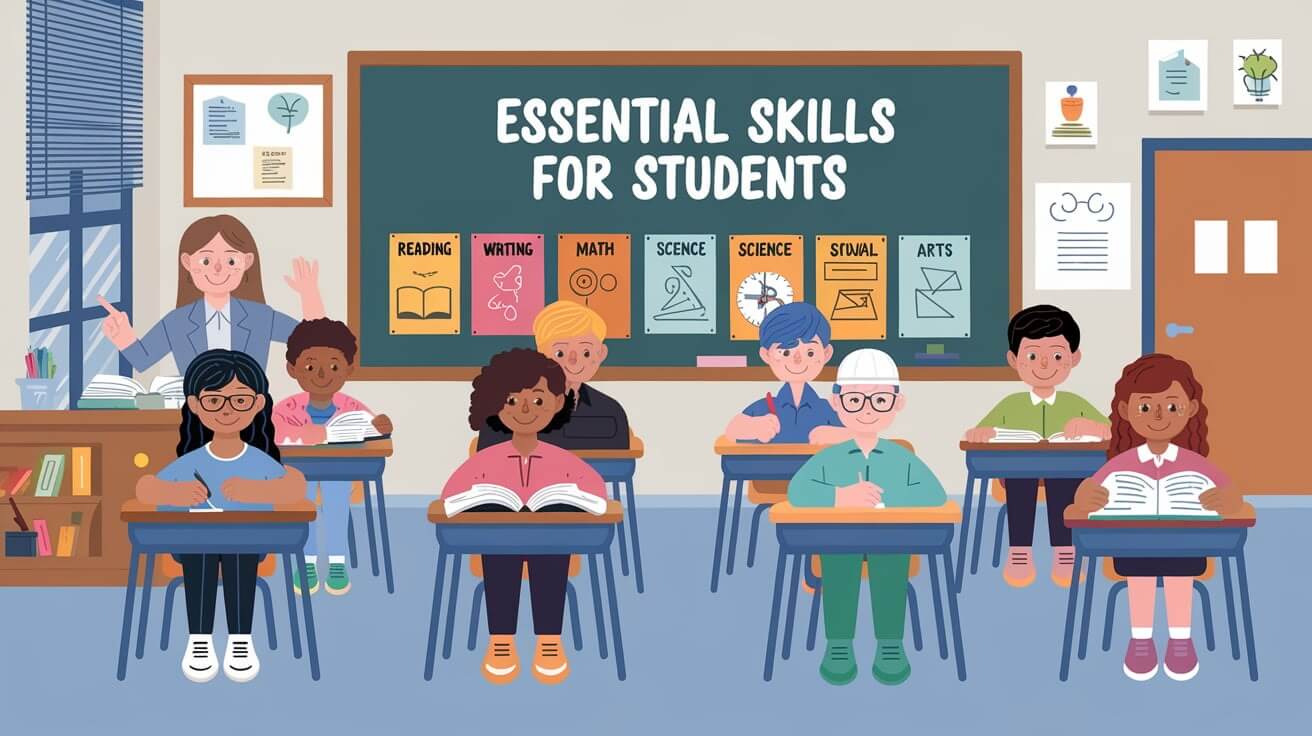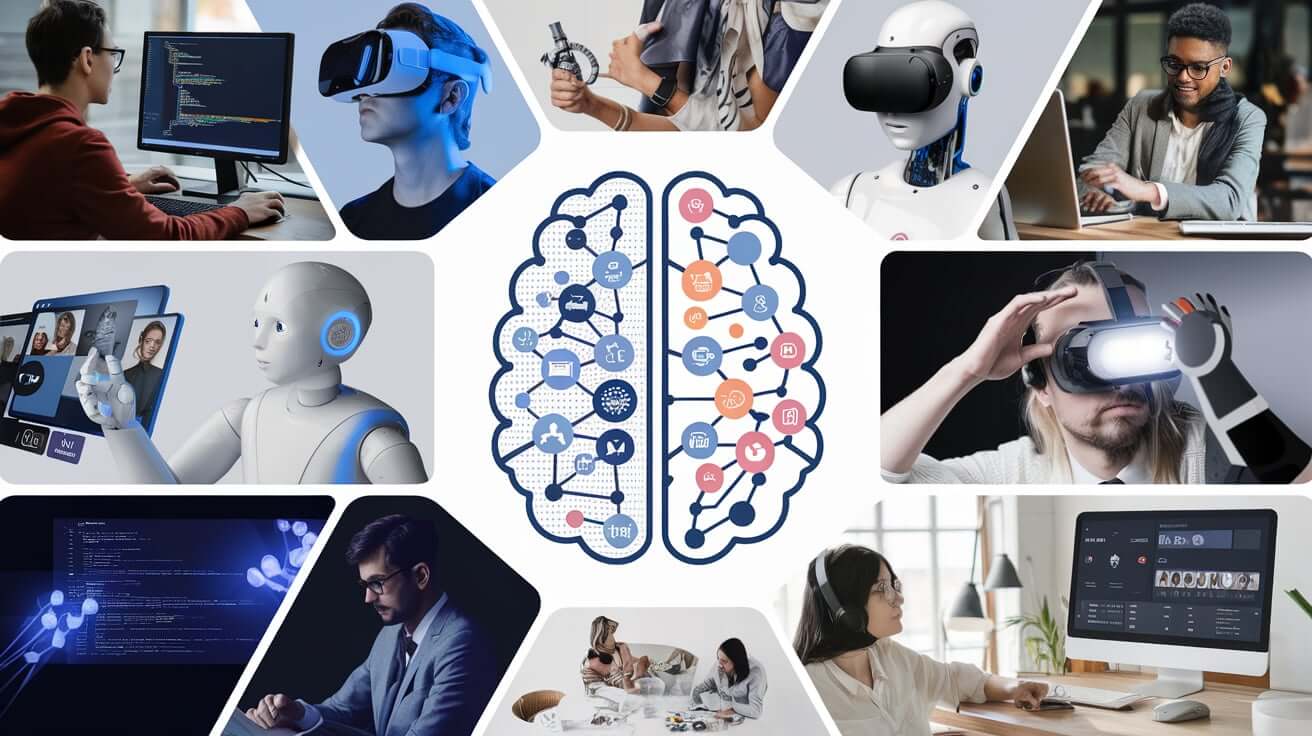
Transitioning from college to the workplace is an exciting yet challenging phase in life. Your degree might give you the foundational knowledge, but to truly excel professionally, specific skills are indispensable. Employers increasingly value critical thinking, adaptability, communication, and teamwork.
This article explores these key skills, offering practical strategies and relatable examples to help you succeed.
Why Skills Beyond Academics Matter

While academic achievements are significant, they are only one piece of the puzzle. A 2021 report from the World Economic Forum highlights that employers prioritize skills like critical thinking, problem-solving, resilience, and adaptability (source: The World Economic Forum).
Employers often find a disconnect between the skills they need and what recent graduates have to offer. Bridging this gap requires deliberate effort and the application of practical strategies, which this article aims to provide. The skills discussed here extend beyond the classroom, equipping individuals with the tools to navigate professional challenges confidently.
Academic success, while foundational, only sometimes translates to workplace readiness. Employers often express concerns about graduates entering the workforce without essential soft skills, making adapting to collaborative, fast-paced environments challenging.
Real-world scenarios demand a blend of technical proficiency and interpersonal expertise. For example, knowing how to use a specific software program might get you hired, but effectively communicating its benefits to your team will ensure your long-term success.
To ensure workplace readiness, graduates must develop competencies that align with employer expectations. These include critical thinking, effective communication, adaptability, and teamwork—transferable skills across roles and industries. As the workplace evolves, so must the skills individuals bring. By understanding the importance of these skills and committing to continuous improvement, you can position yourself as a valuable contributor to any organization.
Critical Thinking and Problem-Solving

Critical thinking is analyzing situations, evaluating options, and making informed decisions. Problem-solving complements this by enabling you to address challenges effectively. Together, these skills empower you to navigate complex professional scenarios.
Why Employers Care
According to a survey by the American Management Association (AMA), critical thinking and problem-solving are among the top competencies employers look for in candidates. These skills demonstrate an employee’s capacity to assess situations logically and devise effective solutions, which is essential for maintaining efficiency and innovation within any organization.
How to Develop These Skills
-
Engage in Analytical Exercises: Solve puzzles, play strategic games, or tackle case studies to sharpen your reasoning.
-
Reflect on Experiences: After completing tasks, assess what worked and what didn’t to improve future decision-making.
-
Seek Feedback: Regularly ask colleagues or mentors for input on your approaches to identifying and solving problems.
Example: During an internship, you may encounter a workflow bottleneck. Analyzing the situation, identifying inefficiencies, and proposing a streamlined process demonstrates critical thinking. A project management tool could significantly enhance productivity if a team needs more communication channels to meet deadlines.
Communication Skills

Effective communication ensures clarity in conveying ideas and fosters collaboration. It’s a two-way process involving speaking, listening, and understanding. Employers consistently highlight communication skills as a vital area where graduates often fall short. Miscommunication can lead to errors, decreased morale, and inefficiencies, making this skill critical for workplace success.
Practical Steps to Improve
-
Practice Active Listening: Pay full attention when others speak, avoid interrupting, and ask clarifying questions.
-
Enhance Writing: Join writing workshops or practice drafting clear, concise emails, reports, and presentations.
-
Participate in Public Speaking: Join groups like Toastmasters to boost confidence and fluency in presenting ideas.
Example: Imagine you’re tasked with presenting project updates to a team. By using clear language, structured points, and visual aids, you ensure everyone understands the progress and goals. Additionally, providing an opportunity for questions and feedback can foster stronger team engagement and collaboration.
Adaptability and Resilience

Workplaces are dynamic, and adaptability is essential for thriving in them. Resilience helps you recover quickly from setbacks, which is a quality that employers value in unpredictable work environments. Adapting to change demonstrates your willingness to learn and evolve, qualities particularly valued in roles involving innovation or rapid technological advancements.
Strategies to Build Adaptability
-
Embrace Change: Transitions should be viewed as opportunities for growth rather than obstacles.
-
Practice Mindfulness: Techniques such as meditation help maintain calm and focus under pressure.
-
Break Down Goals: Small, actionable steps should be set to tackle overwhelming challenges effectively.
Example: When your company adopts new software, volunteering to learn and train others demonstrates adaptability and initiative. By embracing change proactively, one enhances skills while positioning oneself as a resourceful team player.
Teamwork and Collaboration

Effective collaboration with colleagues creates synergy, driving innovation and productivity. Teamwork also requires interpersonal skills, including empathy and conflict resolution. Organizations thrive when employees work together toward shared goals, making collaboration a key factor in success.
Ways to Foster Team Collaboration
-
Engage in Group Projects: Active contribution to team assignments in college or at work helps refine collaboration skills.
-
Understand Team Dynamics: Diverse perspectives and roles must be recognized and respected.
-
Offer Support: Assisting teammates fosters trust and camaraderie.
Example: In a team project, noticing a member’s struggle with their workload and offering assistance helps the project and strengthens professional relationships. This collaborative spirit often results in stronger team cohesion and mutual respect.
Continuous Learning and Digital Literacy

The digital landscape evolves rapidly, making continuous learning and tech-savviness crucial for career growth. Familiarity with essential tools and the willingness to acquire new skills can set you apart. In a technology-driven era, digital literacy is no longer optional; it’s an expectation.
Steps to Enhance Learning
-
Pursue Certifications: Online platforms such as Coursera or LinkedIn Learning offer diverse field-specific courses.
-
Join Webinars: Staying updated with industry trends is facilitated through relevant online seminars.
-
Practice Tech Skills: Exploring commonly used industry software tools enhances readiness.
Example: Mastering Advanced Excel functions or project management tools like Asana significantly improves work efficiency. This demonstrates not only technical proficiency but also a commitment to professional growth.
Time Management and Organization

Effective time management and staying organized ensure deadlines are met without compromising quality. Time management also reduces stress and enhances focus.
Best Practices
-
Use Digital Tools: Applications such as Trello, Google Calendar, or Notion prioritize and track tasks effectively.
-
Set Priorities: High-impact tasks should be tackled first to maximize productivity.
-
Plan Downtime: Scheduled breaks recharge energy levels and maintain focus.
Example:
A daily task list with reminders helps you stay on top of deliverables, avoid last-minute rushes, and ensure quality work.
Leadership and Initiative

Leadership isn’t confined to managerial roles. Demonstrating initiative, motivating others, and taking responsibility showcase leadership qualities that employers value.
How to Cultivate Leadership
-
Volunteer for Projects: Tasks stretching capabilities and offering leadership opportunities should be pursued.
-
Support Colleagues: Providing guidance fosters a collaborative work environment.
-
Stay Solution-Oriented: Focusing on issue resolution rather than dwelling on problems is key.
Example: Proposing process improvements during team meetings demonstrates leadership and a proactive mindset.
Emotional Intelligence

Emotional intelligence (EQ) involves recognizing and managing one’s emotions while understanding those of others. Strong EQ improves workplace relationships and enhances decision-making.
Steps to Boost EQ
-
Practice Self-Awareness: Regular reflection on emotional responses and their influence on actions is beneficial.
-
Show Empathy: Efforts to understand others’ perspectives and feelings build rapport.
-
Handle Conflicts Diplomatically: Addressing disagreements constructively fosters harmonious relationships.
Example: Listening to a colleague’s concerns before responding during a disagreement demonstrates high emotional intelligence and builds mutual respect.
Conclusion
The journey to workplace success starts with recognizing and developing these essential skills. Investing time and effort into building your capabilities will enhance your employability and position you for a fulfilling career. Remember, skills like critical thinking, communication, and adaptability are not one-time efforts but continuous practices. Dedication and persistence can bridge the gap between academic knowledge and professional excellence.
Also Read:
Self-Learning Skills: Proven Techniques for Personal and Professional Growth
4Cs of 21st-Century Learning Skills in Education
How to Develop Critical Thinking Skills in the 21st Century
4 C's of 21st-Century Learning Skills
Essential Learning Skills for the 21st Century
Learning Skills for Students: Your Guide to Academic Success
Key Learning Skills for Academic Success: Effective Strategies
18 New Skills to Learn for Professional Growth
Critical Thinking Skills Can Improve Reading
Top 10 Critical Thinking Skills to Develop for Success
Students Learning Skills




